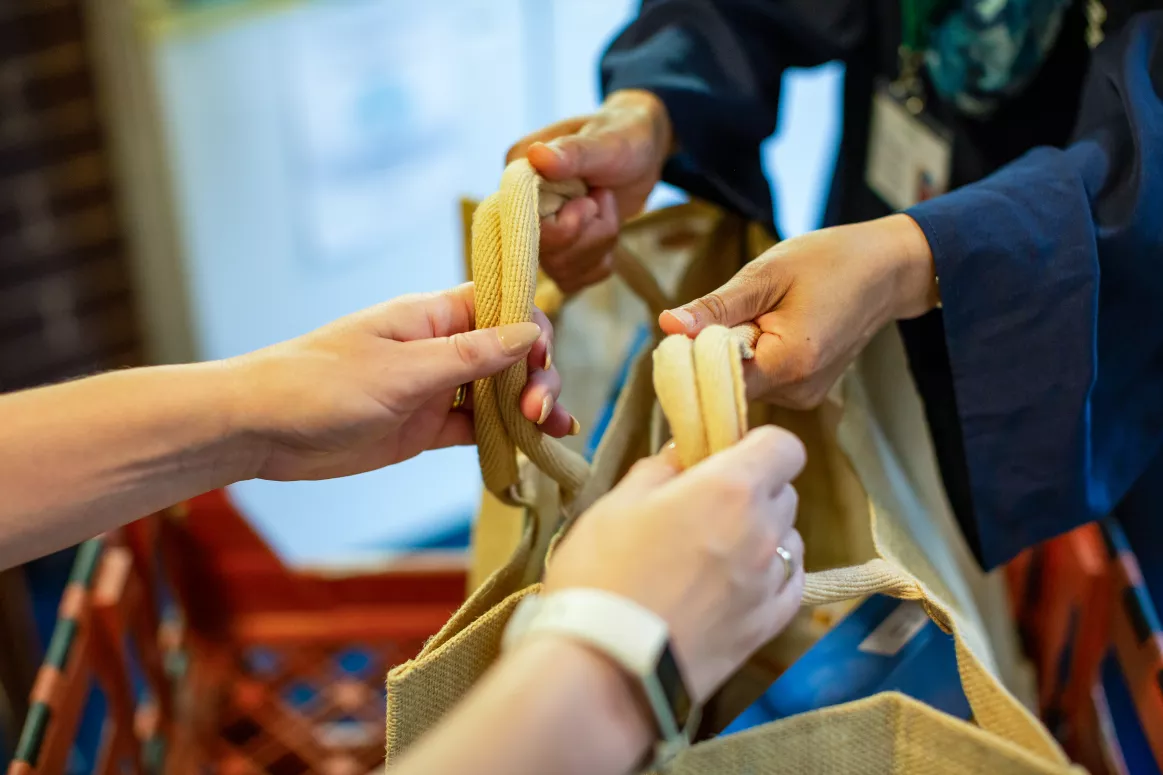Transforming lives: how money advice services are helping to tackle hunger in the UK
Our recent research explored the critical role of advice and support services provided through our community of food banks and the urgent need for systemic changes to address the underlying causes of financial hardship across the UK.

In the UK, food banks have become a lifeline for people facing hunger and hardship. But hunger in the UK is an income problem, not a food problem. Between September 2023 to April 2024 Bristol University evaluated our money matters advice and support services to help us understand and explore:
- How food bank advice services are delivered, to who, when, how and why.
- The ways in which services helped people, why some people do not use them, and what other support people may have had.
- People’s experiences across different models of advice provision, for different types of people with different types of need.
Positive outcomes for our money matters advice and support services
Bristol University’s independent evaluation of our money matters advice and support services has shown promising results. People using these services report having more money through additional social security payments, reduced debts, and decreased expenditure. Many also experience improved financial and personal wellbeing. These positive outcomes are achieved despite significant challenges, including funding constraints, local pressures, and the multiple issues faced by people accessing the services.
Hunger and financial hardship
Our research reveals that people referred to food banks often have very low incomes, high levels of debt, and minimal savings:
- Across the UK, 52% of people are in some form of debt.
- This rises to 82% among people who are food insecure.
- It continues to rise to 90% among people turning to our community of food banks.
- Seventy-eight percent of people experiencing hunger and hardship are managing two or more debts.
- Sixty-five percent of people are dealing with three or more debts.
Unclaimed benefits and additional hardship
Social policy experts, Policy in Practice, estimate that around £23 billion in income-related social security payments and social tariffs go unclaimed each year. This unclaimed support exacerbates financial hardship and debt for millions of people who are not receiving the income they are eligible for from social security. The links between poverty, health, and public services are well established. Managing debt and maximising income through the take-up of social security is essential to help both people on low incomes and public services cope in the face of rising living costs and increasing demand.
Debt management and income maximisation alone are not enough to end hunger and hardship, especially since Universal Credit does not cover the cost of essentials. However, these services can make a significant difference to the depth of hardship people face.
Ongoing struggles and the need for systemic change
While our money matters advice and support services help alleviate financial hardship and prevent situations from worsening, the broader context of high rents, rising prices for essentials, insufficient social security incomes, and low earnings means that many people still won't have enough money to live on. Consequently, some people may need to use emergency food parcels again in the future due to changing circumstances and life events.
Next steps
To address the root causes of hunger and hardship, urgent action is needed from the UK government to update the social security system and ensure no one has to go without the essentials. Implementing effective policy options could significantly reduce the number of people facing hunger and hardship. By ensuring everyone can afford the essentials, we can create a more just and compassionate society where no one needs emergency food to survive.
Trussell would like thank Citi Foundation for funding the evaluation and the University of Bristol for leading and delivering the evaluation.